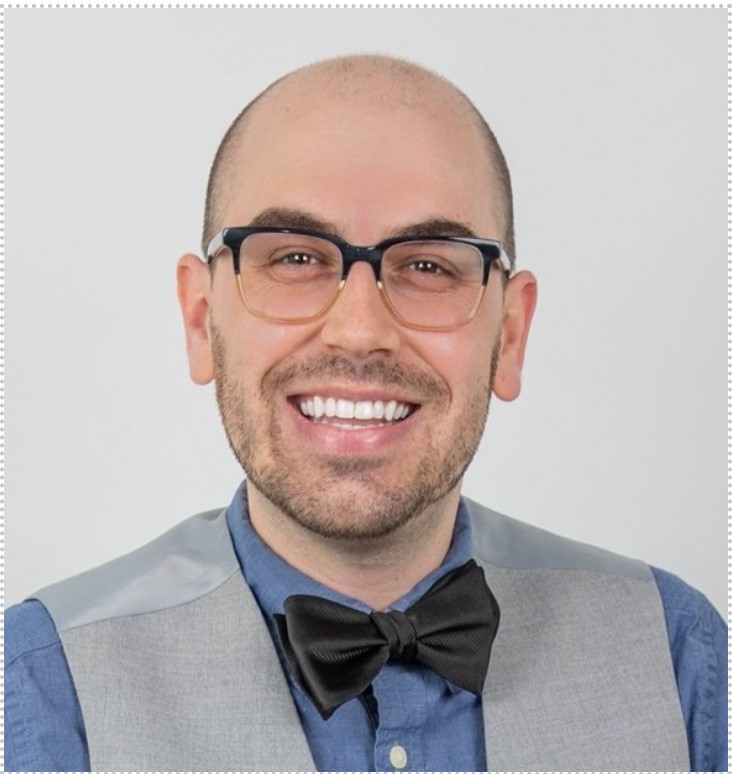
Pelvic and Peritoneal Fluids in Gynecologic Neoplasia
Brannan Griffin, MD |
Pelvic and peritoneal fluid specimens display a myriad of findings encompassing benign, neoplastic, and malignant entities in the setting of gynecologic neoplasia. This webinar will review the cytomorphologic findings of pelvic and peritoneal fluid specimens in the setting of gynecologic neoplasia and address reporting results according to current staging recommendations. Select diagnostic and therapeutic studies performed on cell block specimens will be discussed.
Target Audience
This educational activity is designed for pathologists, cytopathologists, cytotechnologists, students and other members of the cytopathology community.
Learning Objectives
- Recognize the cytomorphology of benign, neoplastic, and malignant entities in pelvic and peritoneal fluid specimens of gynecologic neoplasia
- Report common findings in pelvic and peritoneal fluid specimens according to current gynecologic neoplasia staging recommendations
- Perform select diagnostic and therapeutic studies on cell block specimens involved by gynecologic tumors
Presenter(s):
Brannan Griffin, MD
DISCLOSURE OF RELEVANT FINANCIAL RELATIONSHIPS
The faculty, committee members, Executive Board and staff who are in position to control the content of this activity are required to disclose to the ASC and to learners any financial relationships that have occurred within the last 24 months with ineligible companies whose primary business is producing, marketing, selling, re-selling, or distributing healthcare products used by or on patients. The ASC has reviewed the disclosures and mitigated all relevant financial relationships.
The following individuals have reported financial relationships:
Christopher J. VandenBussche MD PhD: Ad hoc advisory board panel and Consultant – Roche
The following individuals have reported no relevant financial relationships:
Susan Alperstein, MS, CT(ASCP), Kristen Atkins, MD, Catherine Bammert, PhD, CT, MB(ASCP), Christine Booth, MD, Deborah Chute, MD, Amy Clayton, MD, Jacqueline Cuda, BS, SCT(ASCP), Fang Fan, MD, PhD, Beverly Haigler-Daly, BS, CT(ASCP), Michael Henry, MD, Oscar Lin, MD, PhD, Sean McNair, MPH, CT(ASCP), Michelle Reid, MD, Sinchita Roy-Chowdhuri, MD, PhD, Momin Siddiqui, MD, FIAC, Liron Pantanowitz, MD, PhD, MHA, Michelle Reid, MD, Sinchita Roy-Chowdhuri, MD, PhD, Momin Siddiqui, MD, FIAC, Michael Thrall, MD, Vivian Weiss, MD, PhD, Donna Armylagos, BA CT(ASCP), Cheryl K. Arnott, SCT(ASCP), Bonnie Choy, MD, Saroja Devi Geetha, MBBS, Elizabeth Jacobi, MD, Jennifer B. Kernodle-Zimmer, BS, SCT(ASCP), Zaibo Li, MD, PhD, Steven Long, MD, Judy Pang, MD, Ami Patel, MD, Maria Luisa Policarpio-Nicolas, MD, Jose Victor Scarpa Carniello, MD, Sheila Segura, MD, Paul Staats, MD, Peter Wanes, MD
The ASC staff associated with the development of content for this activity reported no relevant financial relationships.
Presenter:
The presenter has no conflicts of interest or financial relationships to disclose.
Continuing Medical Education (CME) Statement
The American Society of Cytopathology is accredited by the Accreditation Council for Continuing Medical Education to provide continuing medical education for physicians. The American Society of Cytopathology designates this enduring educational activity for a maximum of 2.0 AMA PRA Category 1 Credits™. Physicians should only claim credit commensurate with the extent of their participation in the activity.
American Board of Pathology Continuing Certification (CC)
This product can help fulfill the CME requirements mandated by the American Board of Pathology Continuing Certification (CC) process. Earn up to 2.0 Credit Hours.
Continuing Medical Laboratory Education (CMLE)
The ASC designates this activity for a maximum of 2.0 Continuing Medical Laboratory Education (CMLE) credit hours for non-physicians. The CMLE credit hours meet the continuing education requirements for the ASCP Board of Registry Certification Maintenance Program. Participants should claim only the credit commensurate with the extent of their participation in the activity.
Cytotechnologists with Licenses in Florida and California
This program is approved for 2 continuing education credits in the State of Florida and 1 in the State of California. The credit on each link is good for three years from the live presentation date.
Available Credit
- 2.00 AMA PRA Category 1 Credit™
- 1.00 California Credits
- 2.00 CMLE
- 2.00 Florida Credits
- 2.00 Participant

 Facebook
Facebook X
X LinkedIn
LinkedIn Forward
Forward